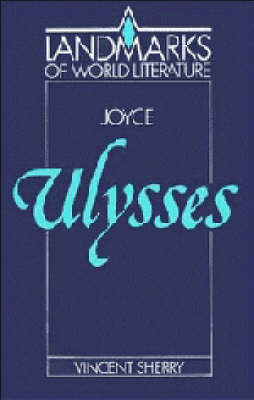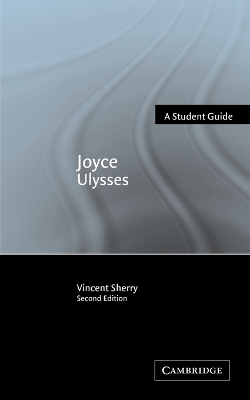Landmarks of World Literature
2 total works
Vincent Sherry addresses two apparently separate preoccupations in Ulysses - its reliance on ancient epic, and its highly experimental verbal art - and develops new, unifying critical arguments through a detailed, sequenced reading of the text. Joyce's appropriation of Homer is aligned with other contemporary reconstructions of the Odyssey, in particular Samuel Butler's and Georg Lukacs', and this historically enriched view opens up a new axis of value in Ulysses: a shift from the interior sphere of the modern novel to the social wholeness of classical epic. Related issues in language philosophy point up a difference between concrete specifics and generic verbal abstractions, a problem Joyce understands as the tension between radical individuality and the generalising, socialising force of words.
In this engaging 2004 introduction, Vincent Sherry combines a close reading of Ulysses with critical arguments. He provides a useful guide to the episodic sequence of Joyce's novel. In addition, he presents a searching interpretation of this masterwork, addressing the major issues in Ulysses criticism. He shows how Joyce's modernist epic remodels Homer's Odyssey; he examines and explains Joyce's extraordinary verbal experiments; and he reads anew the most challenging language of the text, the words through which the characters reveal their secret lives. He also reclaims the landmark status of Joyce's monumental novel, situating it in the relevant contexts of literary tradition and political history. This book is essential reading for all students of Joyce, whether they are approaching Ulysses for the first time or returning to the text.

